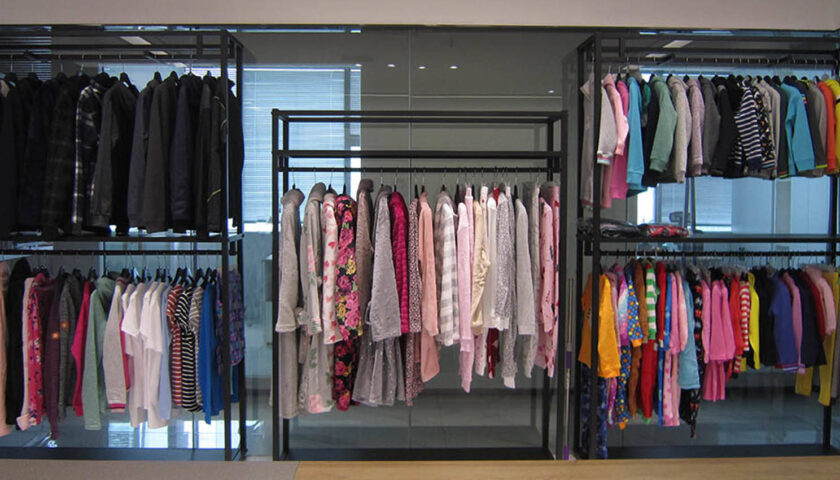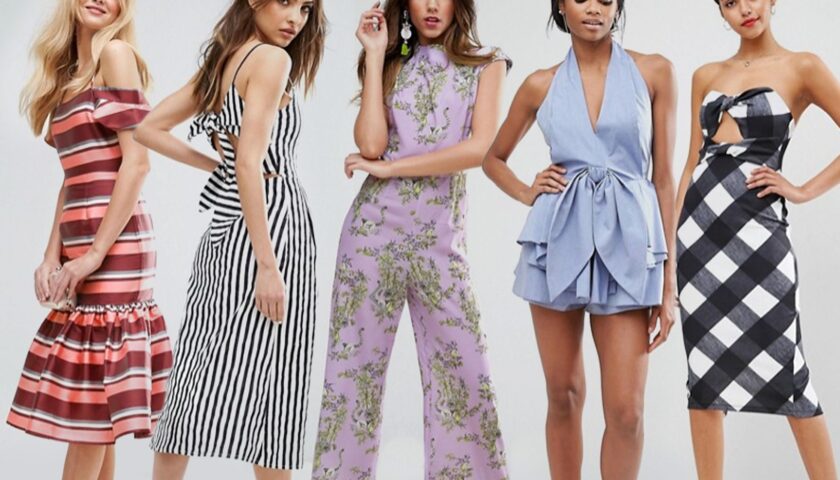Fashion designing is a dynamic and creative field that offers a wide range of career opportunities for individuals with a passion for clothing, style, and artistic expression. Whether fashion designing is a good career choice depends on your personal interests, skills, and goals. In this comprehensive discussion, we’ll explore the various aspects of a career in fashion designing to help you make an informed decision.
What is Fashion Designing?
Fashion designing is the art and science of creating clothing and accessories. It involves conceptualizing, sketching, and crafting garments and accessories that reflect aesthetic, functional, and cultural considerations. Fashion designers are responsible for bringing their creative visions to life, whether through ready-to-wear collections, haute couture, or custom designs.
Pros of a Career in Fashion Designing:
- Creativity and Self-Expression: Fashion designing allows you to channel your creativity and express your unique artistic vision. You have the freedom to experiment with colors, fabrics, shapes, and styles to create innovative and original designs.
- Versatile and Dynamic Field: The fashion industry is diverse, with opportunities in various sectors, including ready-to-wear, couture, sportswear, accessories, and more. This diversity allows you to specialize in areas that align with your interests and strengths.
- Global Reach: Fashion is a global industry, and successful designers often have the opportunity to showcase their work on international platforms. You can gain recognition and clients from around the world.
- Stylish Career: If you have a passion for fashion, a career in fashion designing allows you to immerse yourself in the latest trends, styles, and fabrics. You stay ahead of the fashion curve and continually adapt to changing tastes.
- Economic Potential: The fashion industry is a multi-billion-dollar industry, and successful fashion designers can earn a substantial income. Income potential varies depending on factors like your level of success, the market you target, and the demand for your designs.
- Challenging and Rewarding: Fashion designing is a challenging field that constantly pushes you to explore your creative boundaries. Successfully completing a design and seeing it on a runway or on someone in the street can be highly rewarding.
- Career Variety: Beyond being a designer, there are numerous roles within the fashion industry, including fashion illustrators, pattern makers, fashion stylists, and merchandisers. This variety allows you to find a niche that matches your skill set and interests.
- Sustainability: The fashion industry is increasingly focused on sustainability and ethical practices. As a designer, you can contribute to positive change by incorporating sustainable materials and practices into your work.
Have A Look: What Is The Strongest Natural Antibiotic For Tooth Infection
Cons of a Career in Fashion Designing:
- Highly Competitive: The fashion industry is notoriously competitive. Breaking into the industry and establishing your brand or career can be challenging, requiring talent, dedication, and persistence.
- Irregular Hours: Fashion designers often work irregular hours, especially during peak design seasons and ahead of fashion shows. The demands of the industry can be physically and mentally taxing.
- Financial Risks: Starting your own fashion label or brand may require substantial financial investment. Success is not guaranteed, and financial risks are inherent in the business.
- Criticism and Rejection: Fashion designing is a field where criticism and rejection are common. Not all designs will be well-received, and designers must have a thick skin to handle criticism constructively.
- Continuous Learning: The fashion industry evolves rapidly, and designers must continually adapt to new trends, technologies, and consumer preferences. Staying up-to-date can be demanding.
- Job Insecurity: Job stability can be an issue, particularly for freelance designers or those working for smaller brands. Market fluctuations and consumer trends can affect job security.
- Pressure to Innovate: As a designer, you’re expected to innovate and create fresh designs regularly. This pressure to be original can be creatively stimulating but also mentally taxing.
- Long Journey to Recognition: Building a reputable fashion brand or label can take years of hard work and dedication. Many designers experience anonymity or obscurity for a significant portion of their careers.
Educational Requirements and Skill Set:
To embark on a career in fashion designing, you typically need to meet certain educational requirements and possess specific skills:
Educational Requirements:
- A formal education in fashion design, usually through a bachelor’s degree or diploma program, provides a strong foundation. Many renowned fashion schools and universities offer specialized programs.
Skill Set:
- Creativity: Creativity is at the core of fashion designing. The ability to generate fresh ideas, visualize concepts, and translate them into designs is crucial.
- Artistic Talent: Proficiency in drawing, sketching, and creating visual representations of designs is essential.
- Technical Skills: Understanding the technical aspects of garment construction, pattern making, and sewing is vital for bringing designs to life.
- Attention to Detail: Fashion designers must have a keen eye for detail to ensure that garments are well-crafted and finished to a high standard.
- Trend Awareness: Staying current with fashion trends and consumer preferences is key to designing relevant and marketable pieces.
- Communication Skills: Designers often collaborate with teams, including pattern makers, seamstresses, and marketing professionals. Effective communication is critical.
- Business Acumen: Understanding the business side of fashion, including budgeting, marketing, and branding, is essential for success.
- Resilience: The ability to cope with setbacks, rejections, and the demands of the industry requires resilience and mental strength.
Have A Look: Why Do Exercise Needs Vary Between Individuals?
Career Opportunities:
Fashion designing offers a broad spectrum of career opportunities, including:
- Fashion Designer: Creating clothing, accessories, and footwear for brands, retailers, or your own label.
- Freelance Designer: Working independently on projects for multiple clients or creating custom designs for individuals.
- Pattern Maker: Developing patterns for garments based on designers’ sketches or ideas.
- Fashion Illustrator: Creating visual representations of fashion designs.
- Fashion Stylist: Selecting and coordinating outfits and accessories for fashion shoots, events, or individuals.
- Merchandiser: Analyzing market trends and assisting with product selection and inventory management.
- Fashion Buyer: Responsible for selecting and purchasing clothing and accessories for a retail store or brand.
- Costume Designer: Designing costumes for film, theater, television, and other productions.
- Textile Designer: Creating patterns and designs for fabrics and textiles used in fashion.
- Accessory Designer: Specializing in the design of accessories like handbags, shoes, hats, or jewelry.
- Fashion Entrepreneur: Starting your fashion brand, boutique, or label, and managing various aspects of the business.
- Fashion Consultant: Offering advice to individuals or businesses on fashion-related matters, including wardrobe choices and brand development.
- Fashion Journalist: Writing about fashion trends, designers, and events for publications, websites, or blogs.
- Fashion Educator: Teaching fashion design, history, or related subjects at universities or fashion schools.
- Visual Merchandiser: Creating appealing displays for retail stores to attract and engage customers.
- Fashion Photographer: Capturing fashion images for editorials, advertisements, and campaigns.
- Sustainability Consultant: Specializing in sustainable and eco-friendly fashion practices and advising brands on ethical production and materials.
- Steps to Pursue a Career in Fashion Designing:
- Educational Foundation: Consider enrolling in a formal fashion design program to build your skills and knowledge. Look for reputable fashion schools and universities that offer relevant degrees or diplomas.
- Internships and Work Experience: Gain practical experience through internships or part-time positions with established fashion designers, brands, or companies.
- Portfolio Development: Create a portfolio that showcases your best designs, illustrating your creative style, range, and versatility.
- Networking: Attend fashion events, workshops, and exhibitions to connect with professionals in the industry. Building a network can open doors to opportunities.
- Stay Informed: Keep up-to-date with fashion trends, consumer preferences, and industry developments. Read fashion magazines, blogs, and industry publications.
- Brand Building: If you plan to start your label or brand, develop a business plan and marketing strategy to establish your presence in the market.
- Seek Feedback: Be open to constructive criticism and seek feedback from mentors, peers, and professionals in the field.
- Persistence: The fashion industry can be challenging and competitive. Be persistent, and don’t be discouraged by setbacks or rejections.
- Is Fashion Designing a Good Career?
- Whether fashion designing is a good career depends on your passion, creativity, dedication, and goals. If you have a deep love for fashion, an eye for detail, and a strong desire to express your creativity, a career in fashion designing can be highly rewarding. You’ll have the opportunity to create, innovate, and potentially leave a lasting impact on the industry.
- However, it’s important to be aware of the industry’s competitiveness and challenges. Success in fashion designing often requires persistence, resilience, and the ability to adapt to changing trends and market demands. Financial stability may take time to achieve, especially if you’re building your brand or working as a freelance designer.
- If you’re considering a career in fashion designing, it’s advisable to research educational programs, gain practical experience, and build a strong portfolio. Networking and seeking mentorship can also be valuable steps in your journey.
- Ultimately, a career in fashion designing can be fulfilling if it aligns with your passion and you’re prepared to work hard and stay committed to your creative vision.
Author Bio:
I am a passionate blogger. I love to share my thoughts and ideas through blog posting. Antonio Smith has five years of experience in Tech, Business, & Health. I am associated with myhealthadvices.com, thedentaladvice.com, gossiplyf.com, thepropertybulletin.com, tourismandtravelguide.com, followmyfashion.com, mycurvyfashion.com, letstravelearth.com, timestodaymagazine.com, newstimesmagazine.com.
Raed Also:





